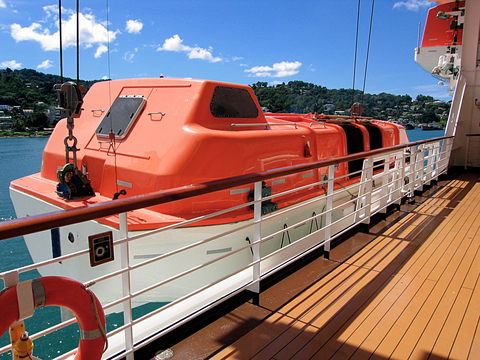
In the latest move to address concerns over cruise ship safety, industry groups on Tuesday announced new safety policies.
The Cruise Lines International Association, which represents 26 cruise lines, and the European Cruise Council announced the policies.
One says that the nationality of every passenger on a ship must be recorded and made readily available to search and rescue workers if needed.
The other specifies 12 key points that passengers will learn during muster drills and emergency instruction. They include: when and how to put on a lifejacket; where to find lifejackets; a description of emergency signals and what to do if you hear one; where to gather when an emergency signal is sounded; how information will be given in an emergency; what to expect if an evacuation is ordered; instructions about whether passengers should return to their cabins before mustering and a description of safety systems and features.
The policies go beyond what is already required by international regulations, CLIA said.
David Peikin, CLIA’s director of public affairs, said the list of 12 items is “a consolidation of the best practices in place within the industry.”
In the months since the deadly January shipwreck of the Costa Concordia, the trade group has already announced policies including requiring emergency drills for all embarking passengers before a ship leaves port, having more lifejackets on ships than are required by law and limiting access to a ship's bridge at potentially dangerous times.
By Hannah Sampson, The Miami Herald












Recommended Comments
Join the conversation
You can post now and register later. If you have an account, sign in now to post with your account.